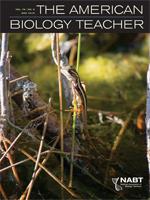The National Research Council's Framework for K—12 Science Education and the resulting Next Generation Science Standards call for engaging students in the practices of science to develop scientific literacy. While these documents make the connections between scientific knowledge and practices explicit, very little attention is given to the shared values and commitments of the scientific community that underlie these practices and give them meaning. I argue that effective science education should engage students in the practices of science while also reflecting on the values, commitments, and habits of mind that have led to the practices of modern science and that give them meaning. The concept of methodological naturalism demonstrates the connection between the values and commitments of the culture of science and its practices and provides a useful lens for understanding the benefits and limitations of scientific knowledge.
How to translate text using browser tools
1 May 2016
Why Engaging in the Practices of Science is Not Enough to Achieve Scientific Literacy
Wendy R. Johnson
ACCESS THE FULL ARTICLE
It is not available for individual sale.
This article is only available to subscribers.
It is not available for individual sale.
It is not available for individual sale.

The American Biology Teacher
Vol. 78 • No. 5
May 2016
Vol. 78 • No. 5
May 2016
methodological naturalism
nature of science
NGSS
science practices
Scientific literacy




